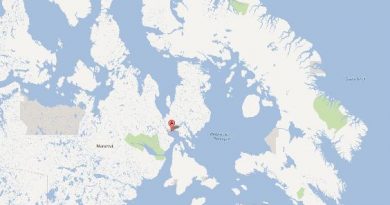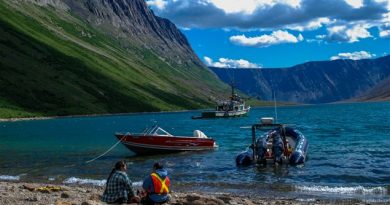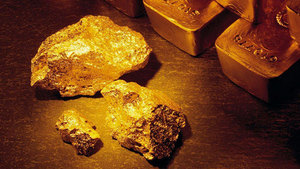Climate kicks off Canada’s French-language leaders’ debate, but no mention of Inuit or Arctic
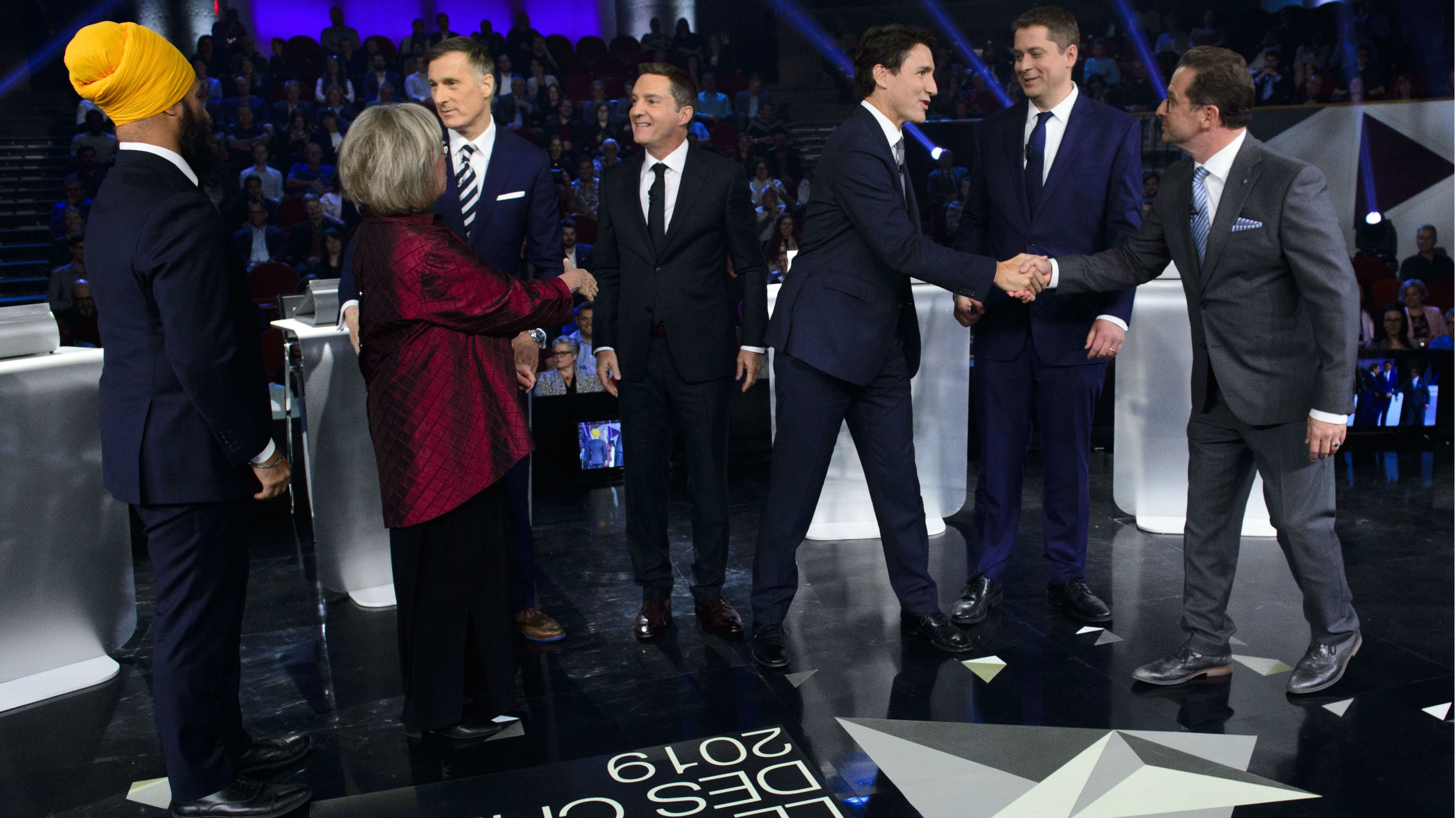
Canada’s federal leaders came out swinging on climate during Thursday’s French-language debate, as global warming increasingly emerges as a dominant issue during current election campaign.
Thursday night’s debate, held at the Canadian Museum of History in Gatineau, Quebec, covered five areas:
- environment and energy
- economy and finance
- services to citizens
- identity, ethics and governance
- foreign policy and immigration
The evening opened on the theme of environment and energy and provoked some of the most dynamic exchanges of the evening.
Justin Trudeau, leader of the centrist Liberal Party, which forms the current government, was the target of many of the exchanges, especially concerning his environmental policies over everything from the federal carbon tax and expansion of the Trans Mountain pipeline that runs between Alberta and the province of British Columbia in western Canada.
Canada’s federal carbon tax applies to provinces or territories that don’t have their own carbon pricing or cap-and-trade systems. The federal tax prices carbon at $20 a tonne, to increase by $10 each year to $50 per tonne in 2022.
The tax was hugely unpopular in Canada’s three northern territories: Yukon, the Northwest Territories, and Nunavut. The territories’ combined population is approximately 144,000 (out of the total Canadian population of approximately 38 million) and is responsible for only a tiny fraction of the country’s overall emissions.
Inuit and First Nations communities, the majority in many regions of the Canadian Arctic, mostly live in isolated, fly-in communities where the cost of living can be more than three times as high as in southern Canada and power is completely reliant on diesel.
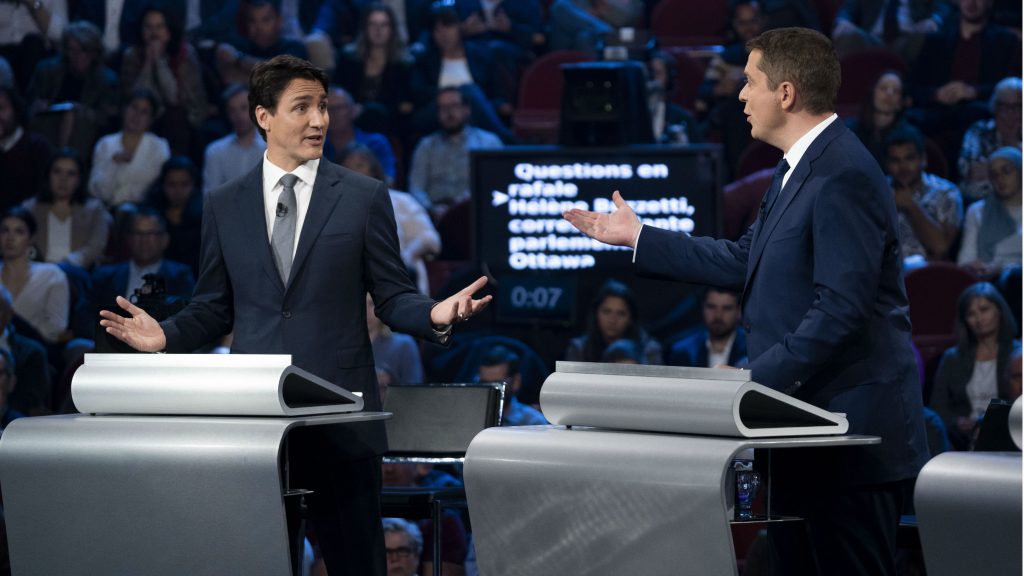
The Northwest Territories launched their own carbon tax on September 1. The federal carbon tax is in effect in Yukon and Nunavut, with some exemptions, like aviation fuel being exempted from carbon pollution pricing and relieving the fuel charge on diesel and natural gas it it’s used for electricity generation in remote communities.
Andrew Scheer, leader of the centre-right Conservative Party, said he would abolish the tax if elected, and reiterated his party’s plan was to “take the climate fight global” saying Canada’s small population prevented it from making a significant dent in global emissions fighting climate change alone.
Meanwhile, Elizabeth May, leader of the left Green Party, which puts environment at the centre of its platform, blasted the other five leaders for not acting urgently enough on climate.
“I’m speaking from the bottom of my heart because time is running out,” said May, who says she’d establish a multipartisan war cabinet to tackle the climate crisis. “Of all the leaders on this stage with me, nobody has a plan that will work to avoid the worst. Greta Thunberg is right, our house is on fire, how dare you?”
Indigenous issues broached, but no mention of Inuit
The debate in French, Canada’s official language besides English, is intended to address Canada’s francophone population of 7,452,075. But in reality, the debate turns largely around Quebec politics and issues, the one Canadian province where the official language is French and where over 6 million people out of a population of approximately 8 million have French as their mother tongue.
The relationship between Indigenous people and the Quebec government have been a key issue in Quebec since the establishment of the Viens Comission in 2016. The commission was set up by the Quebec government after an investigation by Radio-Canada’s program Enquête into police treatment of Indigenous women in the city of Val-d’Or.
Bloc Québécois Leader Yves-Francois Blanchet
Conservative Leader Andrew Scheer
Green Party Leader Elizabeth May
Liberal Leader Justin Trudeau
New Democratic Party (NDP) Leader Jagmeet Singh
People’s Party of Canada Leader Maxime Bernier
The commission gathered testimony from Indigenous people across the province, including Inuit, the majority of whom live in the Nunavik, the Inuit region of Arctic Quebec.
The report was released on September 30 with 142 calls for action that touched on everything from language to policing to housing. Although it was a provincial commission, many of the recommendations touched on the need to work with the federal government in areas like health and youth protection services.
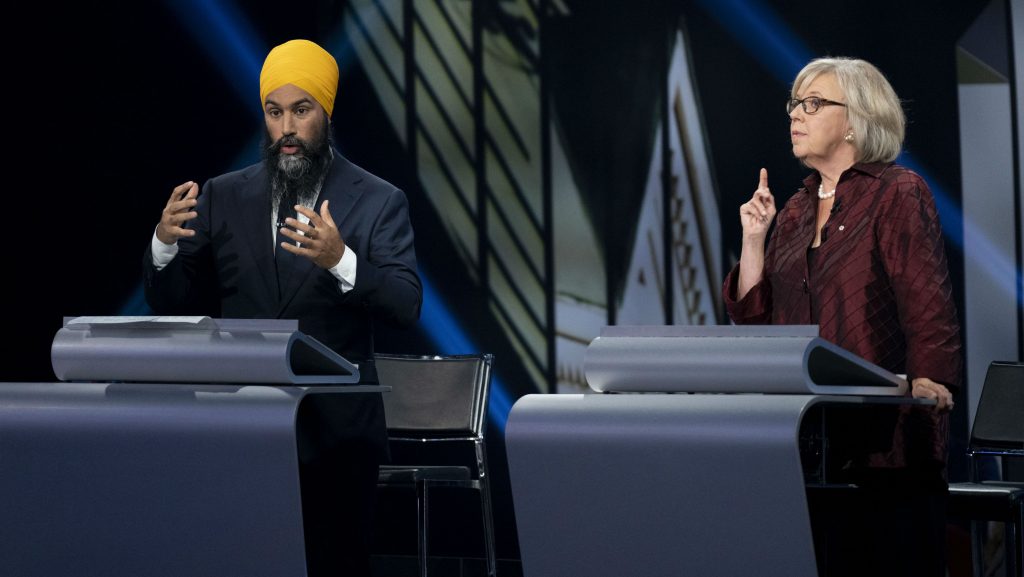
But although leaders touched on the general need to improve the relationship with Indigenous peoples in the debate section concerned with services to citizens, leaders offered few specifics and there was no mention of Quebec’s Inuit population of approximately 13,000, the second largest Inuit population in Canada after Canada’s eastern Arctic territory of Nunavut.
Only Yves-Francois Blanchet, leader of the separatist, centre-left Bloc Québécois, directly called out inaction on the years of reports, commissions and public inquiries done in Canada on Indigenous Peoples.
“There’s no concrete follow-up,” he said. “We don’t implement clear steps. We do everything that’s theoretical, that’s nice. In that time we don’t find solutions, respect isn’t established, trust isn’t built. We must change our deep relationships with the First Peoples.”
As with the English-language debate on Monday, the North was not discussed despite the fact that the Canadian Arctic is warming at almost three times the rate of the rest of the world, and that melting sea ice is affecting everything from traditional Indigenous hunting routes and animal and sea life health, to shipping patterns and the increased economic activity of non-Arctic states in the region.
The Green’s May was the only one during Thursday night’s debate to call out the oversight.
“What’s going on with people in the North of Canada and the Arctic? In the Atlantic? The farmers? It’s not in the debate,” said May after an extended exchange between leaders on whether they’d intervene on Quebec’s secularism law, that prevents certain provincial workers from wearing religious symbols.
Write to Eilís Quinn at eilis.quinn(at)cbc.ca
Related stories from around the North:
Canada: Canadian Liberal leader makes climate pitch to northerners on Arctic campaign stop, Eye on the Arctic
Finland: Finnish EU presidency to work on stronger Arctic policy, climate change mitigation, Yle News
Norway: Norway to focus on civil society, press freedom as chair of Barents Euro-Arctic Council, The Independent Barents Observer
Russia: Andrey Chibis wins governor’s elections in Murmansk, Arctic Russia, The Independent Barents Observer
Sweden: Sweden’s FM calls for more EU involvement in Arctic as country hosts EU Arctic Forum, Radio Sweden
United States: Finnish and US Presidents agree on Arctic security policies, Eye on the Arctic

